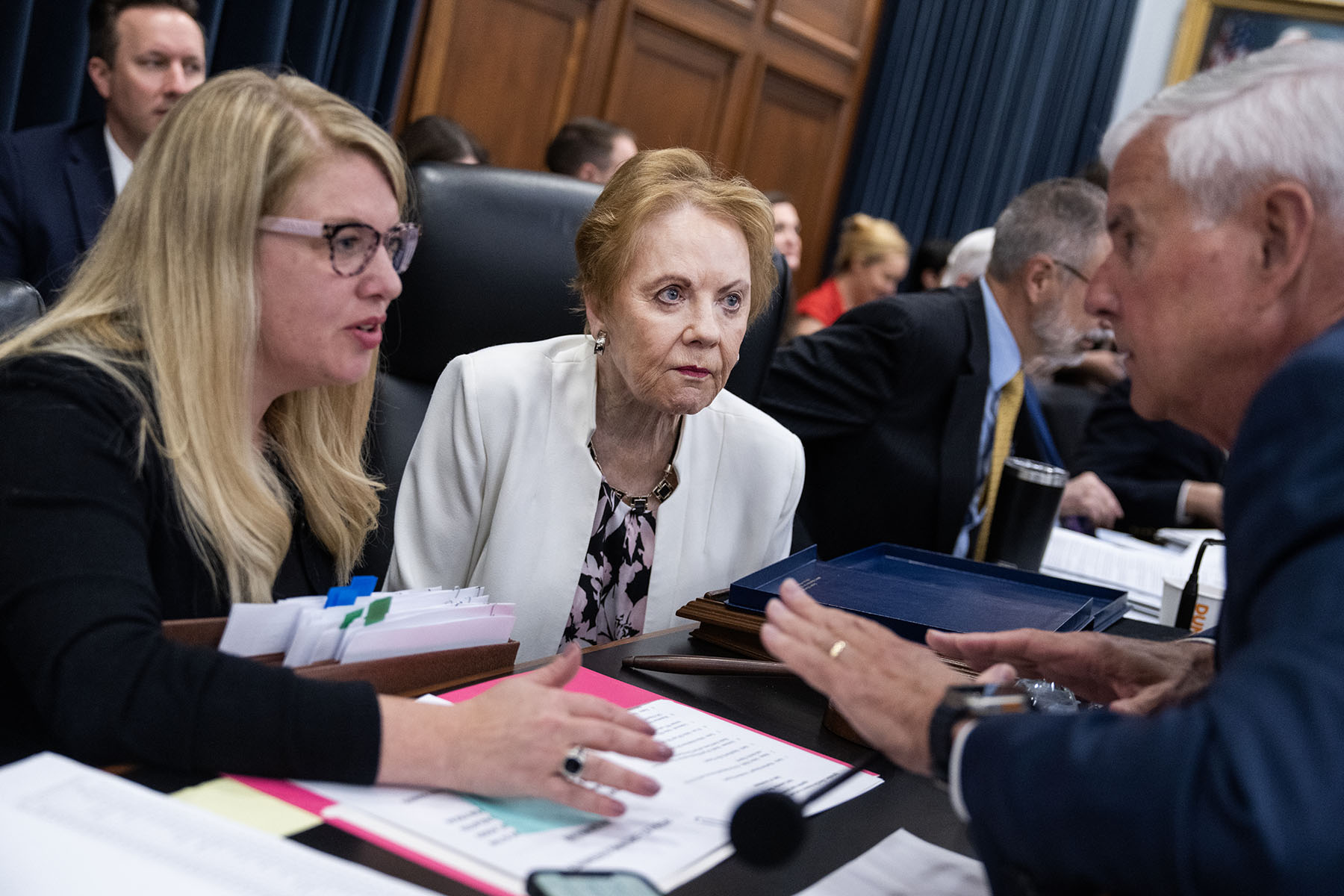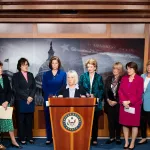Your trusted source for contextualizing abortion and politics news. Sign up for our daily newsletter.
Nearly all of the recent spending bills that have cleared the Republican-controlled House Appropriations Committee have included measures to restrict access to abortions, setting up a fight with Senate Democrats, who’ve pledged to block such measures during looming negotiations to fund the government.
The policies backed by House Republicans are wide-ranging. One provision would ban the Department of Defense from covering paid leave or travel costs for service members and their families who need to seek fertility treatments or abortions outside where they are stationed – a measure that disproportionately impacts Black people, who are overrepresented in the military. Another provision would reverse a decision by the Food and Drug Administration that allowed pharmacies to distribute mifepristone — one of the drugs used in medication abortions — via telehealth and allowed certain pharmacies to dispense the pill to patients with a prescription.
Republicans on the House committee celebrated what they called “pro-life protections” in the spending bills in a statement tied to the anniversary of the Dobbs v. Jackson Women’s Health Organization decision, which ended federal abortion rights. The provisions, they said, “implement key pro-life provisions and prevent taxpayer dollars from being used for abortion on demand.”
The measures are an easy way for Republicans energized around abortion restrictions post-Dobbs to send a message to voters without holding their caucus to a public vote on abortion, which could threaten swing-district members. House and Senate Democratic leaders said they will not accede to these provisions, giving them little chance of becoming law.
Still, in the intensely divided 118th Congress — which must agree on a spending deal by January 1 to avert funding cuts — the efforts raise the specter of further political chaos and make clear the GOP’s aim to restrict abortion at the federal level.
“I made clear at the very start of this Congress that Senate Democrats would be a firewall against any efforts by extreme House Republicans to further restrict a woman’s freedom to make her own personal health care decisions,” Sen. Patty Murray, the chair of the Senate Appropriations Committee, said in a statement. Murray noted she has a long history of rejecting GOP efforts to restrict access to abortion during tense dealmaking in Congress. “That’s not changing anytime soon,” she added.
House Appropriations Chair Kay Granger of Texas, who will lead negotiations for the House, did not respond to a request for comment.
Among the other abortion-related provisions in House spending bills is a ban on U.S. Immigration and Customs Enforcement (ICE) from paying for or facilitating abortions except in cases of rape, incest or risk to life of the mother. ICE detains and deports undocumented immigrants, who would be most affected by this proposed policy.
Another provision would block a proposed rule by the Department of Veterans Affairs that allows the agency’s hospitals to provide abortions if the life or health of the pregnant veteran is at risk, or if the pregnancy is the result of rape or incest. Republicans have railed against the proposed rule, criticizing it for allowing abortions even in states that ban the procedure without the same exceptions and arguing that it infringes on Congress’ power to block federal dollars from paying for abortions.
-
Read Next:
“Your decision to proceed with rulemaking to add abortion to VA’s medical benefits package exceeds VA’s statutory authority, and is a troubling example of the Biden Administration’s growing pattern of executive overreach,” Granger and two other House Republicans wrote in a letter to VA Secretary Denis McDonough last year.
Several other restrictions have cleared subcommittee and will soon come before the full House Appropriations Committee, like a measure to reinstate a policy that blocks federal funding for NGOs that provide abortion counseling or advocate for abortion rights.
The top Democrat in the House Appropriations Committee, Rep. Rosa DeLauro, said she expects Republicans to continue trying to restrict abortion through the spending process. She is particularly focused on the spending bills related to the Departments of Health, Education and Labor.
She said the provisions, known as “riders” because they dictate policy not directly related to spending, amount to “poison pills” in the budget negotiations process.
-
Read Next:
“House Republicans are trying to restrict abortion access every chance they get, and they are injecting these riders into the whole appropriations process. It’s not just an attack on women’s health, but an attempt to derail the entire process of funding the federal government,” DeLauro said.
DeLauro contrasted the approach in the House with the ongoing work in the Senate. There, Murray and Sen. Susan Collins, the highest ranking Republican appropriations committee member in that chamber, approved the first two spending bills unanimously — with no measures to restrict or explicitly expand abortion access.
Murray and Collins join Granger and DeLauro to mark the first time that congressional appropriations are led by all women. Later this year, the four lawmakers will need to come together to help deliver a deal to fund the government and avert a shutdown.
Murray and Collins issued a joint statement saying that they are “determined to continue working together in a bipartisan manner to craft serious funding bills that can be signed into law.”








